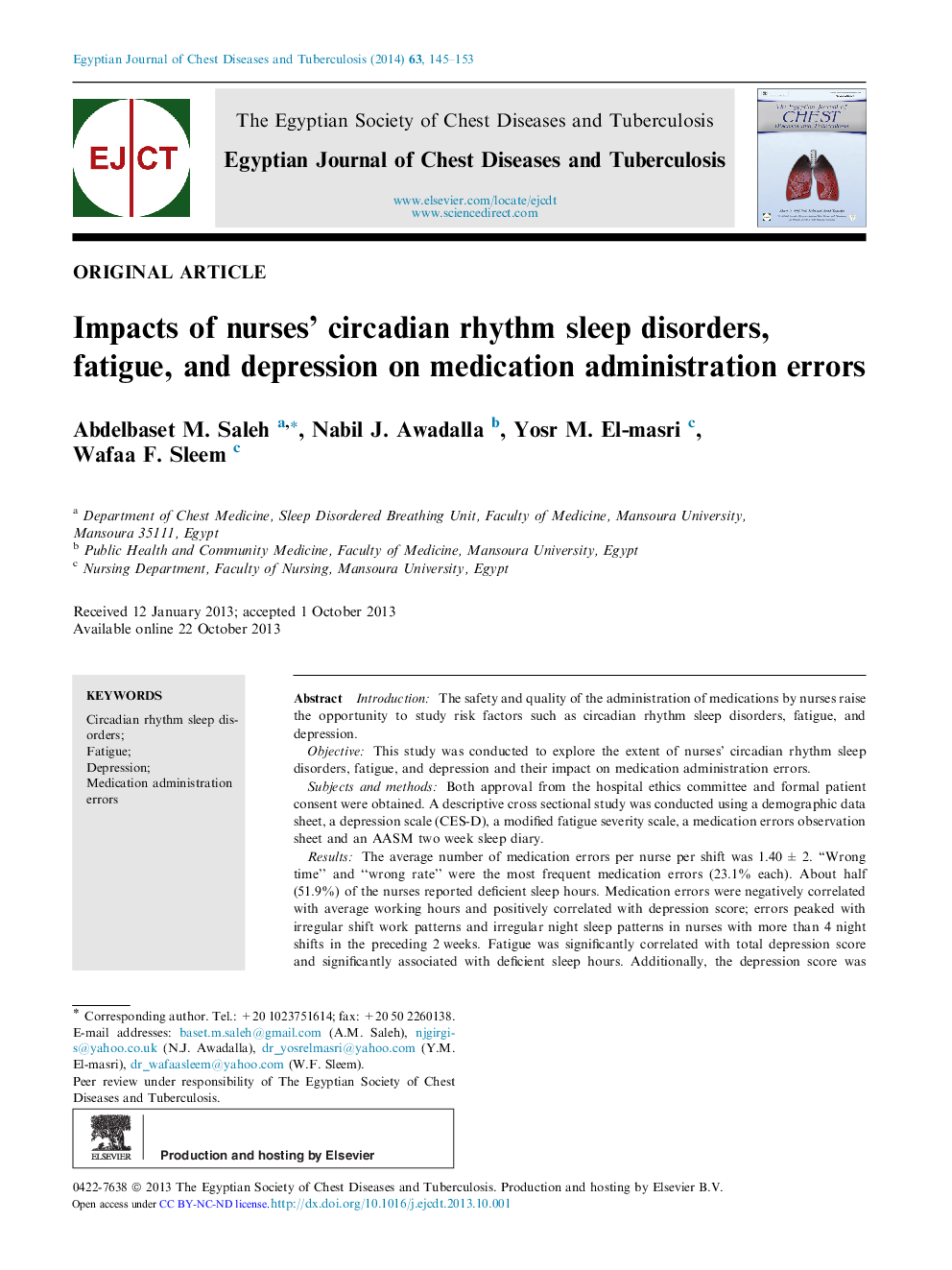| Article ID | Journal | Published Year | Pages | File Type |
|---|---|---|---|---|
| 3400148 | Egyptian Journal of Chest Diseases and Tuberculosis | 2014 | 9 Pages |
IntroductionThe safety and quality of the administration of medications by nurses raise the opportunity to study risk factors such as circadian rhythm sleep disorders, fatigue, and depression.ObjectiveThis study was conducted to explore the extent of nurses’ circadian rhythm sleep disorders, fatigue, and depression and their impact on medication administration errors.Subjects and methodsBoth approval from the hospital ethics committee and formal patient consent were obtained. A descriptive cross sectional study was conducted using a demographic data sheet, a depression scale (CES-D), a modified fatigue severity scale, a medication errors observation sheet and an AASM two week sleep diary.ResultsThe average number of medication errors per nurse per shift was 1.40 ± 2. “Wrong time” and “wrong rate” were the most frequent medication errors (23.1% each). About half (51.9%) of the nurses reported deficient sleep hours. Medication errors were negatively correlated with average working hours and positively correlated with depression score; errors peaked with irregular shift work patterns and irregular night sleep patterns in nurses with more than 4 night shifts in the preceding 2 weeks. Fatigue was significantly correlated with total depression score and significantly associated with deficient sleep hours. Additionally, the depression score was significantly affected by irregular sleep patterns. There were significant relationships between sleep medication intake and medication errors, depression, and fatigue. Linear regression analysis demonstrated that the independent predictors of medication errors were the number of patients under the nurses’ direct care and the depression score of the nurses.ConclusionsMedication administration errors, fatigue and depression were all significantly affected by circadian sleep disorders. An administration’s control of work flow to provide convenient sleep hours will help in improving sleep circadian rhythms and consequently minimize these problems.
